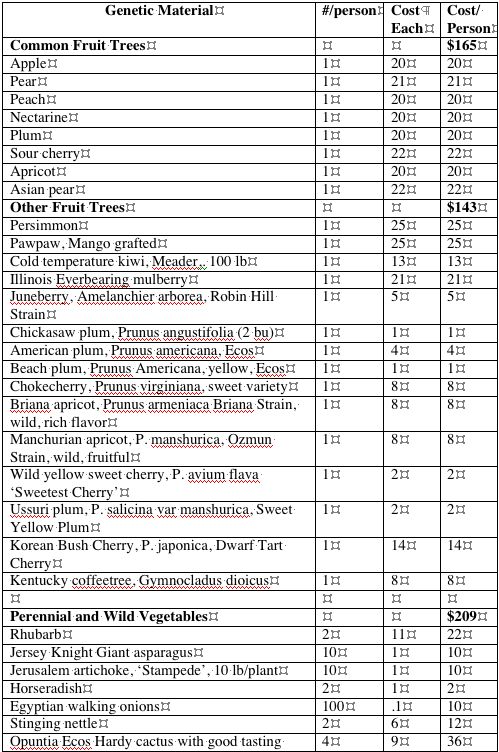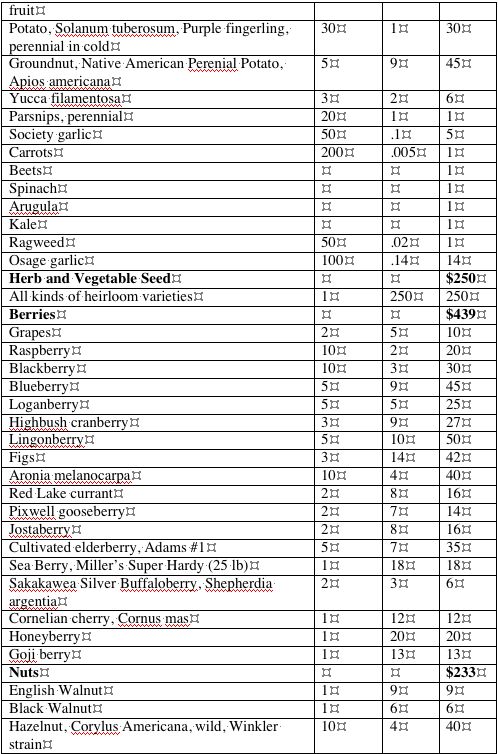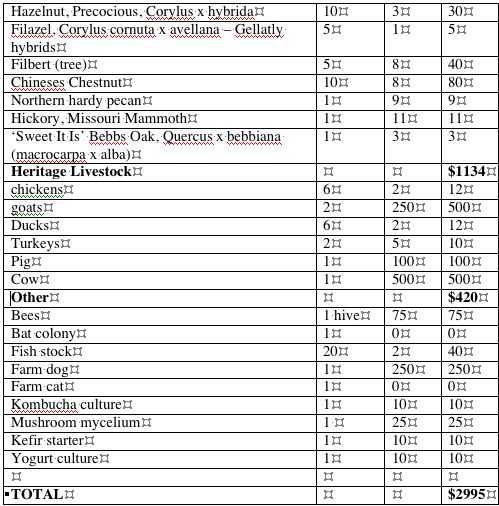Perennial Agriculture: Difference between revisions
Jump to navigation
Jump to search
mNo edit summary |
mNo edit summary |
||
| Line 15: | Line 15: | ||
==Further Information== | ==Further Information== | ||
We are looking for stewardship members for the open source community gene bank. Read more about it [http://openfarmtech.org/index.php?title=Community_Gene_Bank here]. | We are looking for stewardship members for the open source community gene bank. Read more about it [http://openfarmtech.org/index.php?title=Community_Gene_Bank here]. | ||
==Books== | ==Books== | ||
Revision as of 17:01, 15 August 2010
Introduction
Here is a gene base for an integrated, permacultural landscape proposed for Factor e Farm. We are designing with the intent to replicate the same to future facilities - by propagation techniques.
It costs about $3k to acquire the listed genetic base per person. After the initial plantout and acquisition, the entire stock can be propagated - for free to supporters of the program. Subscribe to the program here. This is like Heifer Projects International stock sharing - but not only for poor people.
Together with the Integrated Food and Waste Management System - we can create a healthy food system to replace the present disaster.
Further Information
We are looking for stewardship members for the open source community gene bank. Read more about it here.
Books
- Martin Crawford: "Creating a Forest Garden: Working with Nature to Grow Edible Crops" (released July 2010)
- Eric Toensmeier: "Perennial Vegetables: From Artichokes to Zuiki Taro, A Gardener's Guide to Over 100 Delicious and Easy to Grow Edibles"
- Dave Jacke "Edible Forest Gardens"; - Vol. 1 has theory plus Forest Gardening Top 100 species; Vol. 2 is the practice.
- Wildman Bill: Identifying and harvesting wild edible and medicinal plants in wild(and not so wild) (recommended by Blake C.)
- Solviva - on a year-round, integrated greenhouse - [1]. See Critique of Solviva.


